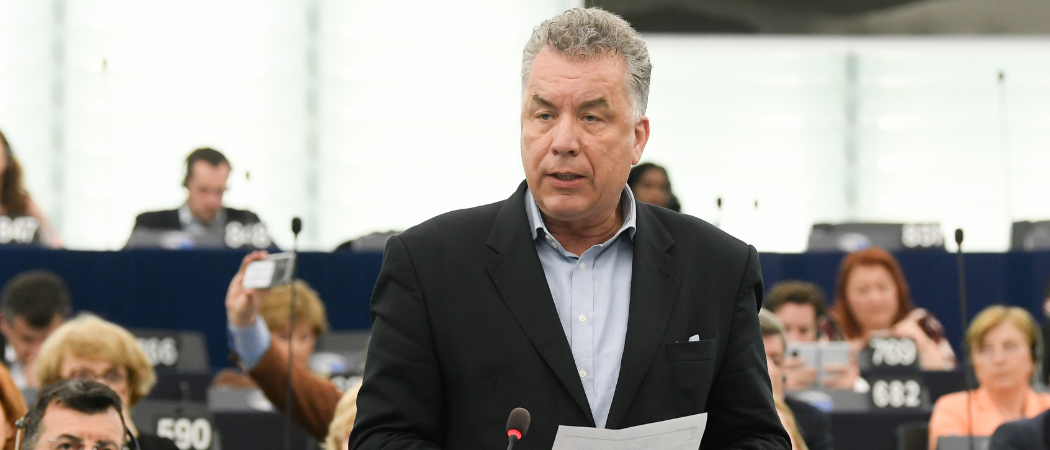The legal framework to support the green tech revolution is winding its way through the Brussels policy mill. Parliament wants changes to make the act easier for industry to expand manufacturing of net-zero technologies in the EU

Christian Ehler, the European Parliament’s rapporteur for the Net-Zero Industrial Act. Photo: Philippe Stirnweiss / European Union
The European Parliament’s rapporteur for the EU plan to give the green tech industry a boost has laid out his ideas for improving the outline presented by the European Commission in March.
“This act is about how we are going to achieve the decarbonisation of our industry,” said rapporteur Christian Ehler during a debate this week at the Parliament’s industry, research and energy committee ITRE. “It has to be simple, understandable and successful,” he said.
For starters, Ehler wants to make it clear what counts as green technology and what doesn’t. Although he says it is not perfect, he proposes to link the list to the ‘EU taxonomy for sustainable activities,’ a classification system established to clarify which investments are environmentally sustainable in the context of the European Green Deal and net-zero goals.
Second, Ehler wants to get rid of the Commission’s proposed classification of technologies, which would establish a two-class system of support for green tech projects based on whether they are deemed strategic or not. But projects have to apply for strategic status after they launch. That means when a company starts development, it doesn’t know which regulatory framework it will fit under, a potential source of confusion.
Ehler would also like to adjust the scope of the proposal to cover the end to end supply chain for green technologies. Ensuring strategic autonomy, he says, means having control over the entire process, not just the final product. “Industrial supply chains are not linear or simple,” he said.
The Commission unveiled the plan in March, seven months after the US announced the Inflation Reduction Act (IRA), which will funnel $369 billion to into the green tech industry.
The proposed EU regulation would set up enabling conditions for the manufacturing of 10 net-zero technologies, through streamlining approvals and access to regulatory sandboxes to test new products. Another eight strategic net-zero technologies would get further benefits including help to access finance.
The act would create the framework to help ensure the net-zero technologies needed to reach the 2050 climate goals are manufactured within the EU. The Commission has set the objective of at least 40% of EU’s strategic net-zero technologies being manufactured within the bloc by the end of the decade.
But unlike the IRA, the net-zero industry counterplan doesn’t come with fresh money. The way it stands now, it won’t be “a complete answer” to the US $369 billion fund, Ehler noted. He hopes the much-anticipated Commission proposal for a Sovereignty Fund, due to be announced in the coming weeks, will provide the necessary funding.
The goal of the net-zero industry act is, “to improve the business case for industrial decarbonisation in Europe,” said Ehler. “We are finally talking about how to operationalise the high rhetoric of the Green Deal.”
The file is currently being rushed through with the aim of agreeing a deal between Parliament and member states before the next European Parliament elections take place in June next year.





 A unique international forum for public research organisations and companies to connect their external engagement with strategic interests around their R&D system.
A unique international forum for public research organisations and companies to connect their external engagement with strategic interests around their R&D system.